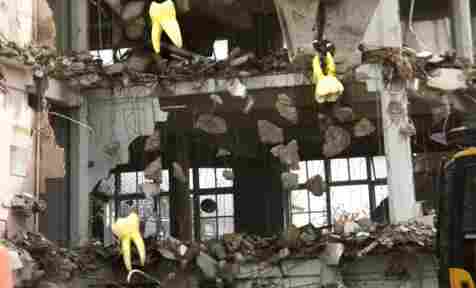Elizabeth Aldous' work with University College London Hospitals (UCLH) artist-in-residence, Deborah Padfield, is the latest example of the integrated approach offered to patients at the UK’s only specialist facial pain clinic, led by international expert, Professor Joanna Zakrzewska. It is also further evidence of the link between the arts and wellbeing and recovery.
Aldous said of the UCLH approach: “I was invited to capture images which represented the horrendous pain I was feeling. The images were of decay, destruction and despair. I was once a functional, useful person who used to do loads of things and was now in pieces. It was upsetting, but in a strange way it helped me manage my pain.”
Initially she was told by her dentist that a decaying tooth was the root of the problem. But, after having it removed, the pain worsened.
I was once a functional, useful person who used to do loads of things and was now in pieces. It was upsetting, but in a strange way it helped me manage my pain
“The pain spread to my neck and my ears,” she said. “Wind hurt my face, I couldn’t eat, swim, sing, work – do all the things I love. Imagine the very worst toothache, earache, neck pain every single day of your life. It makes me very depressed.”
Her dentist referred her to the Eastman Dental Hospital, which in turn transferred her to the facial pain clinic.
She said: “The clinic offers a very holistic approach, much more dynamic that you would normally expect. The different specialists are working together to try to find the right approach for me.”

As well as expert medical help, she was introduced to the face2face art project.
The face2face art project has been a really successful component of how we help patients manage their pain
She said: “The pain hasn’t gone completely, but I am noticing that I have more days when the pain is less severe.”
Professor Zakrzewska, who studied medicine and dentistry, said: “Patients with chronic pain need to have time to tell their stories, to be listened to, and to be given a plausible explanation. The face2face art project has been a really successful component of how we help patients manage their pain.”
